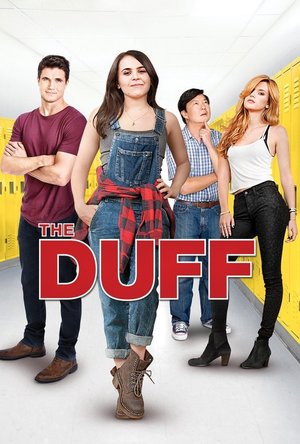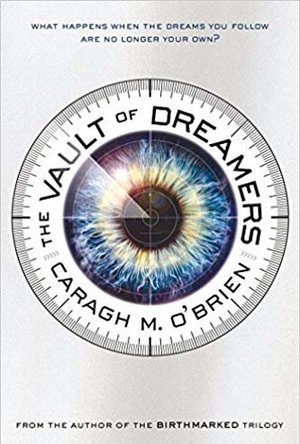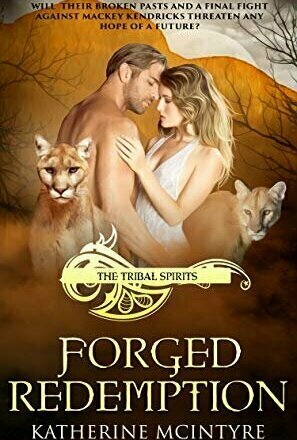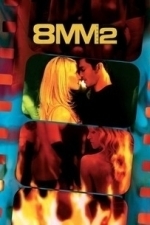Human Resource Management: Strategic and International Perspectives
Jonathan Crawshaw, Pawan S. Budhwar and Ann Davis
Book
A comprehensive introduction to HRM for students who are new to the field, but who will be seeking...
Movie Metropolis (309 KP) rated The DUFF (2015) in Movies
Jun 11, 2019
With the brilliant Mean Girls being one of the only exceptions to the trend, the latest film to tackle the genre is The DUFF, but is Ari Sandel’s directorial debut worthy of a recommendation?
The DUFF follows daily life at a typical American high-school with typical US teens separated into categories depending on their social standing.
Enter Bianca Piper, played by the brilliant Mae Whitman, a vastly intelligent girl who is unaware of her place in the rankings as the DUFF – Designated Ugly Fat Friend – that is until her hunky next door neighbour Wesley (Robbie Amell) informs her of that fact.
What ensues is a selection of mildly amusing scenes interspersed with some touching social commentary about what it means to be normal in an ever-changing world as Bianca tries to come to terms with her place in the school hierarchy.
Despite the obvious focus on looks and beauty, the film does have a deeper message of self-worth and it’s a shame this is rarely touched upon outside of the finale.
Perhaps The DUFF’s strongest suit is in its unique filming style. The use of technology and social media helps distinguish it from its rivals and what it lacks in story is made up for with clever uses of animation and an engaging soundtrack.
Just when you think the film has decided to settle in a rut and remain there for the duration, it throws you off course with a clever cut-scene or use of technology and there are two moments in particular that had the audience in stitches.
Unfortunately, the rest of the film isn’t that funny. The story is predictable and the will-they-won’t-they romantic subplot is massively clichéd and dull because the characters, apart from Bianca, simply don’t register – there is no reason to care for them.
Mae Whitman is a force to be reckoned with as Bianca and is by far the most intriguing member of a disappointingly bland cast. Elsewhere, Ken Jeong (Community, The Hangover) and Allison Janney (Hairspray) pop up as a concerned teacher and Bianca’s mother, but they are both wasted in ultimately thankless roles.
Overall, it’s easy to feel sorry for films like The DUFF. The school-set genre has fizzled out in recent years and hasn’t got its mojo back despite numerous efforts from movies much less accomplished than this one.
Mae Whitman and the use of Family Guy-esque cut-scenes are the main plus points here, but despite its best intentions, it’s hard to give it too much of a recommendation and is probably best reserved for a late-night DVD viewing.
https://moviemetropolis.net/2015/04/12/disappointingly-generic-the-duff-review/
Sophia (Bookwyrming Thoughts) (530 KP) rated The Vault of Dreamers in Books
Jan 23, 2020
The Vault of Dreamers had a completely different concept that I had been dreaming of, but despite the fact I was thinking of something else entirely, the idea behind The Vault of Dreamers was perfect. Dreams = Hope. What better way than placing that in a prestigious school of art, competition, and to top it off – a reality show? Definitely a dream come true for some – as much as I want to try my hand in acting one day, a camera stalking my every move 24/7 is NOT my dream come true.
Rosie Sinclair is one of the students attending the school – called the Forge School, and the show is called the Forge Show. Not exactly a creative name in my opinion (Forge???). Though, as you read the book and as Rosie finds out what's really happening at night at the Forge School, the name makes a lot of sense. Especially when you take a peek at forge's etymology.
Rosie's sort of different from other characters I read – she's rebellious from the start. She doesn't find anything amiss among the school at first, so her breaking rules straight from the beginning is simple – she misses night. Most I come across are say... going with the flow. Everything's happy until something sinister happens or said character finds something sinister about something. Rosie, well, she's all "I'm a rebellious person, and I'll be breaking rules after laying low for awhile."
The voices Rosie has is really weird as well. O'Brien writes those as though Rosie is two people – she even replies with her thoughts to that voice! If that's not odd, I don't know what is. Actually, I can think of a lot of other things that can be more odd, but that's beside the point.
What I still don't get, however, is why Rosie went to the Forge School when a) she hates cameras and prefers being behind them instead and b) she knew full well when she applied that she would be watched 24/7. The Forge Show isn't one of those shows that go blah – it's widely popular. And with the Internet still existing in Rosie's world, why isn't there a YouTube of sorts? Is everyone that addicted to The Forge Show that there's nothing else to watch? Or is it just the thrill of watching 12 hours – even AGT isn't that long! – of students in grades 10-12 competing for fame? No wonder reality shows are flying up the charts – guys, what happened to the wondrous days of Code Lyoko? :p
As much as I enjoyed following Rosie around as she tries to find out what's going on at night at The Forge School, I was sort of disappointed in the ending. Well, the last chapter, which technically counts as the end. The run down? <spoiler>Rosie gets caught breaking the rules twice, finds out the actual truth of what's going on, dean and co tries to stop her, which results in her being whisked away from the world forever. Essentially, Rosie is dead, yet not dead. Until she's 18, but how much time passes between getting caught and the last chapter, I have no clue. The ending's all very open-ended – which CAN have it's perks – but I don't know what's going to happen with Rosie. However... it's rare the villain wins.</spoiler>
The Vault of Dreamers will most likely appeal to those interested in reading about a reality show where everything is not what it may seem behind cameras. I may look into O'Brien's other works.
------------------
Advanced review copy provided by Macmillan for review
Original Rating: 3.5 out of 5
Original Review posted at <a href="http://bookwyrming-thoughts.blogspot.com/2014/09/arc-review-the-vault-of-dreamers-by-caragh-m-obrien.html">Bookwyrming Thoughts</a>
<a href="http://bookwyrming-thoughts.blogspot.com/"><img src="http://3.bp.blogspot.com/-cG5gfBqJVzk/VA5BIojjZ9I/AAAAAAAAD1g/7srLUfpAGEU/s1600/banner.png"; /></a>

Popular Magazine
Lifestyle and Magazines & Newspapers
App
Introducing Popular Magazine Powered by SCOOP For over 27 years, POPULAR has successfully become a...
Debbiereadsbook (1664 KP) rated Forged Redemption (Tribal Spirits #5) in Books
Oct 2, 2019
I strongly and highly recommend; find it absolutely NECESSARY that you read the other books first, and in order. The ongoing story arc that runs through them all comes to a head here and you NEED to know what has happened before. What this group of people have suffered before at the hands of a madman.
Drew is trying to redeem himself, even though the things he did weren’t under his own steam. Joining forces with the Red River and the Silver Springs packs to rid the world of his nemesis, Drew knows he faces the final battle. But at least he has his Ally-Cat at his side, and if he dies today, she knows he loves her. Ally suffered when Drew left to join the Landsliders, in more ways than one and now, no one will want her, damaged as she is. Drew though? He might, if they survive this last fight.
When Drew turned up with Lucas, right near the beginning, you knew, you just KNEW he had a tale to tell and that it wasn’t going to be pleasant. And it certainly isn’t! Far darker than I was expecting, with so many twists and turns, I had to concentrate to keep up! Trust me when I say, this is a good thing: when a book makes ME slow down my reading, because I must keep up, it’s a very good thing. Ally’s tale is equally hard reading, just in a different way.
We knew Drew turned Landslider, that much is clear from the previous books, but WHY he did, isn’t so clear. When you hear what his father did, and then Hendricks made Drew do, you wonder how the man is still standing, the weight of his guilt is massive. Ally doesn’t sugar coat his feelings, she doesn’t try to make him feel any better. She carries her own (misplaced) guilt and that’s enough for her. What Ally DOES do, though, is make Drew HOPE. She makes him hope there is an end to their nightmare. She makes him hope there will be a happy ending, for the others at least. And deep down, deep within that part of him that never really let Ally go two years ago, she makes him HOPE there will a place for him in her heart, even after all he did.
It’s difficult reading, watching Ally and Drew come together again, especially when Drew comes across a particularly nasty reminder of something he did, and Ally suffered because of it. But it also BEAUTIFUL reading, when they finally, FINALLY give in to the true feelings, and just be together, the way they are supposed to be, as mates.
The end, for Hendricks, when it comes is long and heavy on the fighting, but I really think it is needed here. You need to know how Drew and Ally are feeling as they close in on Hendricks, and I would have loved to have heard from him, as his end draws nigh, I really would. Some clue to his feelings is given, but I’m just greedy!
All the previous pairings show up, Sierra and Dex (Forged Alliances) Finn and Navi (Forged Decisions) Raven and Jer (Forged Contracts) and Lana and Lucas (Forged Futures) and I am so pleased they did!
Just why I didn’t pick up that Dex was Drew’s brother before this book, I have no idea!
It’s always sad when a series comes to an end, but this one goes out with a huge bang!
Thank you, Ms McIntyre, for bringing these people into my world. I shall miss them!
5 stars
**same worded review will appear elsewhere**
Debbiereadsbook (1664 KP) rated Rescued By The Alpha (Alaskan Wolf Alliance #1) in Books
Aug 26, 2018
MM Wilde is a pen name for Morticia Knight, and I LOVE Ms Knight's work. So when I came across this one, I had to buy it and see what the difference was.
There is a HUGE amount of difference it this book and some of Ms Knight's other work and I do not mean that negatively.
Elam manages to whack his head and pass out in a storm. Nic finds him and Nic's wolf is all for the younger man to be in Nic's space. Nic the man, at first, not so much. But Fate has a different idea for Nic and Elam, bringing some of the Old World tales back to life.
I LOVED this! I have a soft spot for m-preg books, and I loved that this one delivered on every level.
Nic, the man, wants no part of a human mate, but Nic, the wolf is all for the idea. Elam is supposed to be off men, but Nic pushes all the buttons he never knew he had. When Nic reveals his true form, and explains just what he is to Nic, Elam is all for it. When they realises just what the mating meant, I loved that they are BOTH totally surprised by it! The Healer for the pack is too. And I love being surprised as much as they were!
It's not overly explicit for a shifter male/male book, but I really enjoyed that it wasn't. Both men have a voice, so we get all of Nic's reluctance to have a human mate, with all of Elam's williness, once they decide to. All of Elam acceptance of Nic and his pack. Of what the mating really meant, and each man's reaction to the news of their impending arrival. And we get all of Nic and Elam's worry when things start to unravel with a rival pack.
I bought this yesterday, went to bed to read a few pages, 2 hours later, I'm done. Sign of a great book, that, to keep me fully engaged and engrossed til you run out of book and didn't realise you were that close to the end.
so....
5 full stars
**same worded review will appear elsewhere**
Darren (1599 KP) rated 8MM 2 (2005) in Movies
Jun 20, 2019
When the couple receive photos of their threesome they try to figure out who took them leading them into the sexual underworld in Hungry. While trying to clean up the blackmailing the two find themselves being approached from all angles as they try to keep any political career undercover.
8MM 2 is a film with one of the most miss-leading titles in film history, it is advertised as a sequel to 8MM starring Nicolas Cage which is about going into the underworld of sex. This is a boring political drama cover up after a daughter and her fiancée end up in a sex tape and get blackmailed. Nothing about this makes any sense for it to be a sequel but only uses the name because of the standard below average story. to make matters worse this might as well just be a softcore film because you can pretty much guarantee there is more time when the women are naked more than actually clothed.
Actor Review
Johnathon Schaech: David is the young lawyer entering into a powerful family as he tries to rise up the ranks in the Hungarian Embassy. When he has a steamy threesome with his wife to be and a strange woman he finds himself having to go into the world of pornography to uncover the people trying to blackmail him. Johnathon is solid but basic in this role.
Lori Heuring: Tish is the wife to be for David, her father is the Ambassador making her have a high profile name in social circles. She ends up having to follow David into the underworld of the sex industry to find the tape from their night. Lori is solid in this role without being special.
Bruce Davison: Ambassador Harrington is the father of Tish he is highly respected and the night the two have together could find themselves being responsible for a problem in his career. Bruce gives us a very basic supporting performance that we just don’t see enough.
Julie Benz: Lynn is the sister of Tish that is the older one of the two who always wants to protect her younger sister. Julie is wasted in this supporting role.
Support Cast: 8MM 2 has a basic supporting cast where nearly all the female cast are naked with most not really having much going on.
Director Review: J.S. Cardone – J.S. really doesn’t give us a worthy sequel that lacks any of the important parts needed.
Mystery: 8MM 2 doesn’t really offer us a mystery because we don’t see what the big mystery is.
Thriller: 8MM 2 doesn’t keep us on edge at all.
Settings: 8MM 2 is set in Hungary without being anything special.
Special Effects: 8MM 2 has basic effects when needed but nothing fancy.
Suggestion: 8MM 2 is one just to avoid really because it is terrible. (Avoid)
Best Part: Final Twist.
Worst Part: Pointless amount of nudity.
Believability: No
Chances of Tears: No
Chances of Sequel: No
Post Credits Scene: No
Oscar Chances: No
Runtime: 1 Hour 46 Minutes
Tagline: From The Last Kiss To The Last Breath… From The First Kiss To The Last Breath.
Trivia: Much of the sex depicted is actual not simulated.
Overall: Dreadful sequel that really doesn’t work.
https://moviesreview101.com/2016/06/12/franchise-weekend-8mm-2-2005/

Dubai Marco Polo Spiral Guide
Book
For advice you can trust, look no further than Marco Polo. The Dubai Marco Polo Spiral Guide is a...

The Cooking Game- Mama Kitchen
Games and Stickers
App
Welcome to The Cooking Game. You’re on a mission to start running your own restaurant business. ...
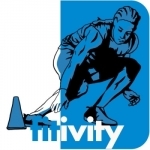
Sports Speed & Quickness
Sports and Health & Fitness
App
Fitivity gets you better. Looks like you’re here to get better speed! Use this app if you want to...

